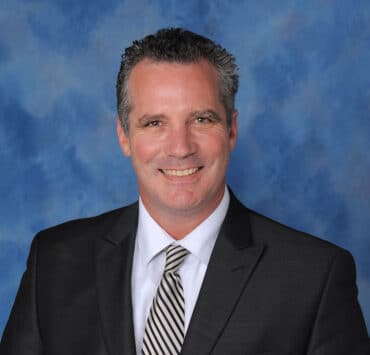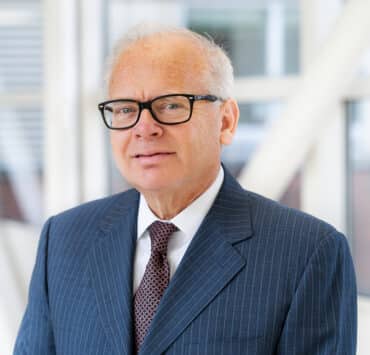The kidney dialysis industry has many moving parts—the providers of the service itself, related hospital systems, and nephrologists. Each player is significant, and each player has its own set of concerns and aspirations.
Ken Leidner, chief growth officer at Satellite Healthcare, understands all of them, and uses his many-angled perspective to drive Satellite’s business forward.
After originally working in the investment banking/corporate development space, Leidner joined DaVita Healthcare Partners in 2004. He led a national sales team focused on inpatient/outpatient kidney care services and partnership opportunities with hospitals, physicians, and integrated health networks, as well as growing the business through mergers, acquisitions, and joint ventures.
“In my first six years there, I was a transaction director and coordinated over fifty successful transactions,” Leidner explains. “When I was promoted to VP, I began running two hospital-facing development teams—one that addressed hospital patients, the other geared toward their eventual discharge.”
A key accomplishment was merging and cross-training those teams, and then expanding their knowledge base to better partner with hospitals.
About four years later, a former DaVita colleague recruited him to DSI Renal (later acquired by US Renal) as senior vice president of physician services. He consulted with affiliated nephrologists to help them expand their practices through strategic planning and cofounded the Nephrology Business Leadership University (NBLU), a five-day “boot camp” for second-year nephrology fellows, with the Dallas Renal Group and the University of California at San Diego.
“NBLU teaches fellows the business and economics of nephrology so they’ll be better prepared to embark on their own private practice paths,” Leidner notes. “They also learn the importance of marketing their business so they can build up their own patient bases.”
In March 2019, Leidner joined Satellite Healthcare, a not-for-profit organization founded by noted nephrologist Dr. Norman S. Coplon. “Although its key business segment is its eighty-five dialysis clinics, Satellite also operates the largest independent dialysis lab and does extensive applied pragmatic research,” Leidner explains. “It’s aimed at finding innovations that can have immediate impact on problems in the industry, and also performs contracted research for the FDA and others.”
Satellite has also recently launched an MSO providing back-office functions to nephrology practices, as well as a new care management program for chronic kidney disease (CKD) and end-stage renal disease (ESRD) patients under a payment-for-performance model rather than the typical fee-for-service model, with the goal of delaying disease progression.
“When I’m engaging different constituents, I see the perspective from the view of providers, hospitals, and doctors. That makes me a better partner for them.”
Leidner’s varied background with dialysis centers, hospitals, and nephrologists has given him a unique perspective. “It’s a complex system, and I think I navigate it better than many,” he says.
“When I’m engaging different constituents, I see the perspective from the view of providers, hospitals, and doctors. That makes me a better partner for them, and I can also share my knowledge with my team, so they’ll become stronger and better at what they do.”
That’s important because Satellite’s model for kidney care, with emphasis on home therapies, is expanding from simply providing dialysis to providing other interventional measures, such as ensuring patients see their expanded care teams, like nutritionists and behavioral health specialists who can help to coordinate their care.
“Education is important too,” Leidner remarks. “Right now, almost half of dialysis patients didn’t realize their kidneys were failing until they crashed and went to the ER. And although certain types of dialysis can be performed at home instead of a clinic, only 20 to 30 percent of patients know that home treatment was even an option.”
A key aspect of Leidner’s responsibilities at Satellite encompasses overseeing the company’s various partnerships with hospitals, health systems, and nephrologists. “The typical development approach is to simply sell an offering by creating a need. We prefer a consultative approach—that is, ‘I have solutions to solve various problems, so let’s focus on your situation and goals, and then we’ll present solutions to get there,’” Leidner says.
Leidner attributes meeting the company’s goals in part to his player/coach leadership style. For example, he’ll often run drills as a team and conduct role-playing exercises, and he’ll sit in on initial meetings, tacitly demonstrating his “other-centered” approach to the process and guiding the team toward consultative interactions. “Eventually, I move into the background and let the team take over completely,” he says.
The typical result? Within a year, engagements are up, partners are pleased, and long-term relationships begin to evolve.
He also has a unique outlook on strategic planning for growth. “We can analyze the entire country in terms of population growth, the occurrence of chronic kidney disease and end-stage renal disease, and then determine locations where we’ll have the best chance of reaching patients that will benefit,” Leidner explains. “Because Satellite is not-for-profit, we can concentrate on doing the right thing clinically instead of just satisfying shareholders. We may operate at reduced margins while innovating new models of care that align with mission and help underserved populations.”
Leidner cites a rural market in which Satellite partnered with a local nephrologist to set up a new model to support home-based dialysis. “It enabled patients to skip the three-times weekly visits to the clinic. We were financially challenged there for five straight years, but we provided a service that the community needed and honed our model along the way,” he says.
Leidner is further bringing his problem-solving approach to insurance companies and other payers. “Medicare reimbursements barely cover the cost of delivery,” he says. “When Medicaid is involved, we may actually lose money.” The company’s new care management program addresses the situation by delaying the onset of ESRD, lowering hospitalizations and increasing transplant rates.
“We explain to hospital CEOs and payers that up to 50 percent of kidney patients start their treatment journey by crashing in the ER—and that’s a high-cost way to begin. And the total cost of care, which includes physicians, drugs, hospitalizations, and dialysis sessions, will be even more expensive,” he says.
“But they’re often receptive when we explain that our program of intervention and education can actually hold their costs down, because of fewer hospitalizations, more involved patients, and the potential to ethically postpone dialysis treatment,” Leidner adds.
In the end, Satellite’s penchant for education and long-term care keeps patients well and out of hospital systems. It’s a classic win-win situation.


